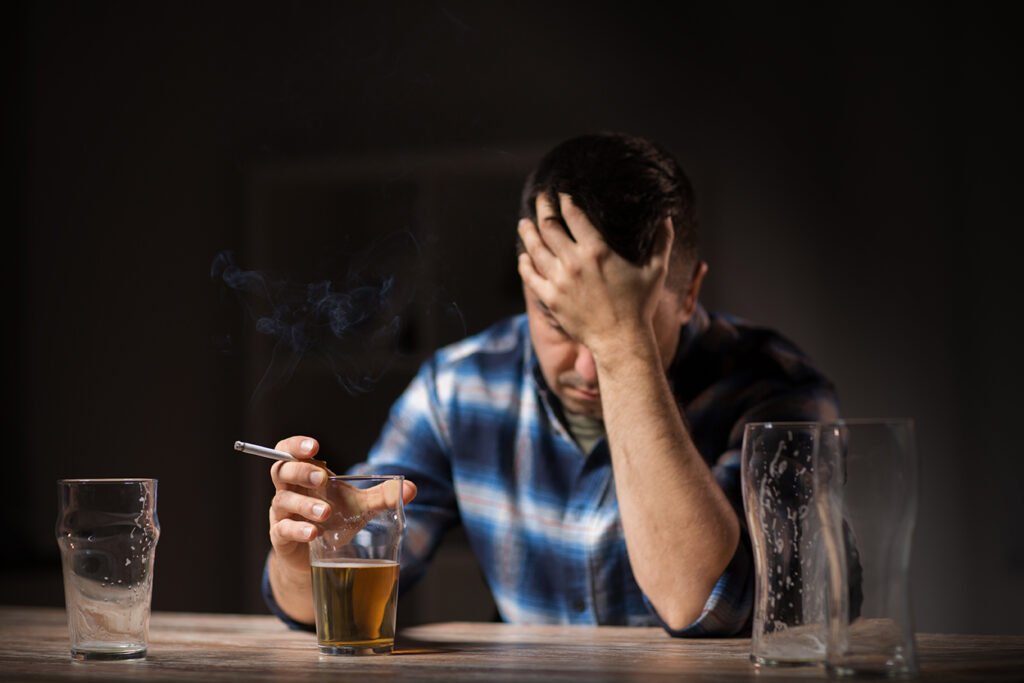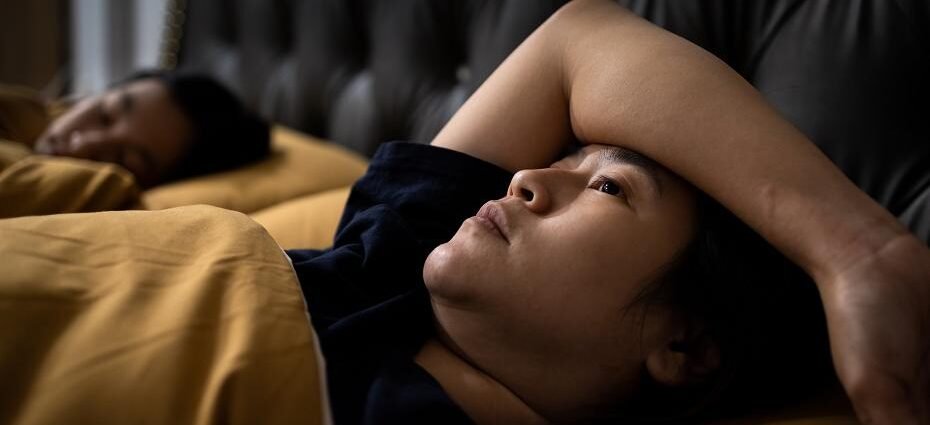Insomnia may be associated with a number of adverse health conditions where they can be named from heart disease, high blood pressure, diabetes and some types of cancer. Thus, it is considered that night consumption of alcoholic beverages, caffeine and nicotine can cause sleep disturbances.
Considering how important it is for health to be able to sleep well at night and the widespread use of these substances, relatively few studies have thoroughly investigated the association between night use of alcohol, caffeine and nicotine and how it affects sleep architecture.
What affects sleep quality?
While there is no doubt that there is a connection between the meals and drinks we eat and since this affects the quality of our sleep, a study conducted by Florida Atlantic University and published in the journal Sleep, in which 785 people who maintained their daily sleep routine for a total of 5,164 days participated, found that consuming alcohol in the four hours before going to bed affected much more than drinking coffee before bed.
The main conclusion here is that each of the people metabolizes caffeine in different ways, so, for some people, drinking an espresso or coffee after dinner could cause some dizziness or unveiling. But despite this, even when researchers took into account factors such as age, sex, weight, mental health and schedules, alcohol remained the main sleep disruptor.
This may surprise anyone who has ever drunk alcohol and numbs a little. But according to sleep experts, the problem is not falling asleep; it is that alcohol interrupts REM (Rapid Eye Movement or sleep with quick eye movements), fundamental to healthy brain function, as it is essential in emotional regulation and the consolidation and retention of memories; so, you’ll most likely wake up in the middle of the night.
Of course, sleep experts also understand that most people won’t change the hours of their alcohol consumption from 7pm to 4pm if you’re one of those who sleeps at 11pm. For this reason, if you consume alcohol 4 hours before bedtime, limit it to a drink, it should not be harmful. Of course, sometimes this rule can be broken and yet your sleep can be affected in your regular hours. What is very important that you know is that as long as it is not a permanent habit, the body will manage to recover.
These findings support the importance of sleep health recommendations that promote the restriction of alcohol and nicotine at night to improve sleep continuity.
That’s how alcohol affects sleep
A glass of wine helps you relax after a long day of work but does you no Favours when it comes to going under the sheets and turning off the sleeping light. When you stop drinking alcohol, not only improve your mood and skin is cleared, but sleep quality could also improve. While many people rely on a glass of wine to relax, lowering the revolutions of the frenetic routine and sometimes to fall asleep, even a single drink greatly diminishes the quality of that dream.
A few ounces of alcohol are able to change the basic structure of normal sleep.
Ingesting alcohol to fall asleep is a completely ineffective strategy that can cause a multitude of sleep disorders, such as insomnia, excessive daytime sleepiness and alterations in sleep architecture. The most frequent changes in sleep architecture occur early at night when blood alcohol levels are high, she says. Although alcohol is initially a sedative, once metabolized, it can cause poor quality sleep disorders later in the night.
The Dr. Kristen Willeumier, neuroscientist, research expert in the field of neurodegenerative diseases and author of the book Biohack Your Brain: How to Boost Cognitive Health, Performance & Power, explains that while the soothing properties of alcohol increase deep sleep during the sleep phase without fast eye movements (NREM or Non Rapid Eye Movement), it also reduces the time spent in the sleep phase with fast eye movements (REM or Rapid Eye Movement).
Sleeping phases
Sleep has two stages, the dream of slow waves, non-thick or sleep without rapid eye movements; and paradoxical, dream sleep or sleep with rapid eye movements. Both stages form a sleep cycle. This cycle usually lasts from 90 to 100 minutes and is repeated 4 to 5 times at night. Slow sleep occupies 75 to 80 per night and paradoxical 20-25 per cent. The first half of the night deep sleep is the one that predominates, that is, phase III and IV of slow sleep, and in the second half of the night paradoxical sleep and phase II of slow sleep.
REM sleep is fundamental to healthy brain function, as it is essential in emotional regulation and the consolidation and retention of memories. According to a study by the London Sleep Center, published in the journal Alcoholism: Clinical & Experimental Research, alcohol makes sleep in the REM phase cut markedly.

Sleeping well at night can achieve much more than prevent from tiring the next day. Sleep is essential to preserve brain energy, to facilitate learning and develop good memory, supporting cognitive capacity, emotional regulation and elimination of toxins. Alcohol consumption disrupts that restorative sleep and can result in impaired immune, cardiovascular and cognitive health.
In addition, insomnia increases the risk of mood disorders and abuse of certain substances. If you really want to maintain healthy sleep, limiting alcohol consumption to one drink a week can be a good starting point. Alcohol should not be consumed on a regular basis if your intention is to lead a healthy lifestyle for the brain. But if that’s not something you really care about or give you a lot of caution, you can undo the impact alcohol causes on sleep when you take a break. The good news is that sleep architecture can be fully restored after a period of abstinence and cleanliness.
Since the architecture and efficiency of sleep decrease with age, it is important to keep in mind that alcohol will aggravate, as well as further advance these problems. When alcohol is eaten, it is best to refrain from consuming it before bed. Since alcohol is a central nervous system depressant and has a half-life of six hours or more, depending on the type of alcohol and the volume consumed, you should take it at least six hours before bed if you don’t want to interfere with your sleep cycles.
